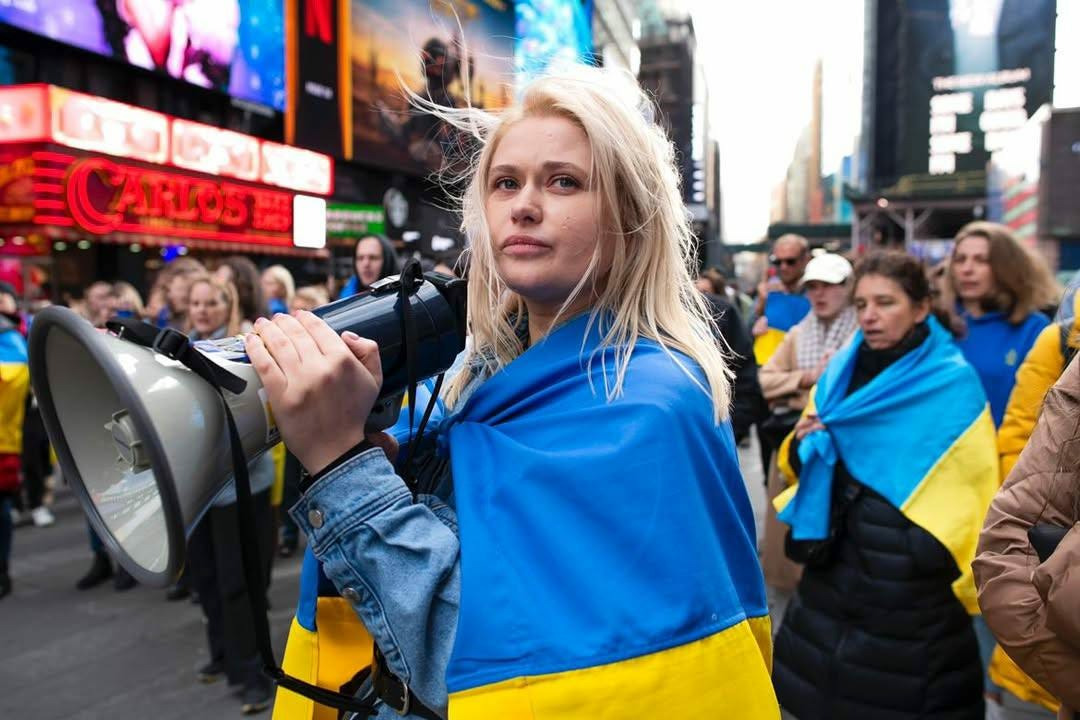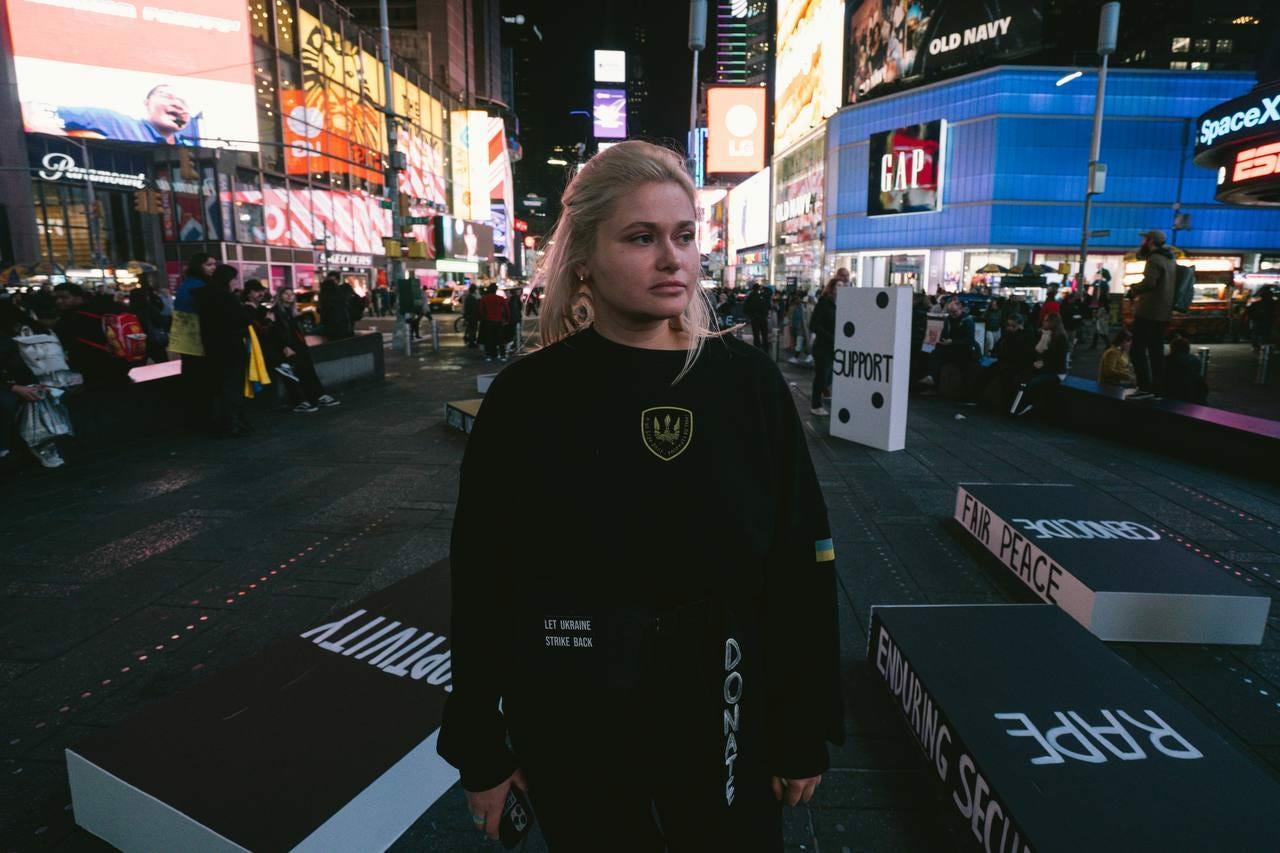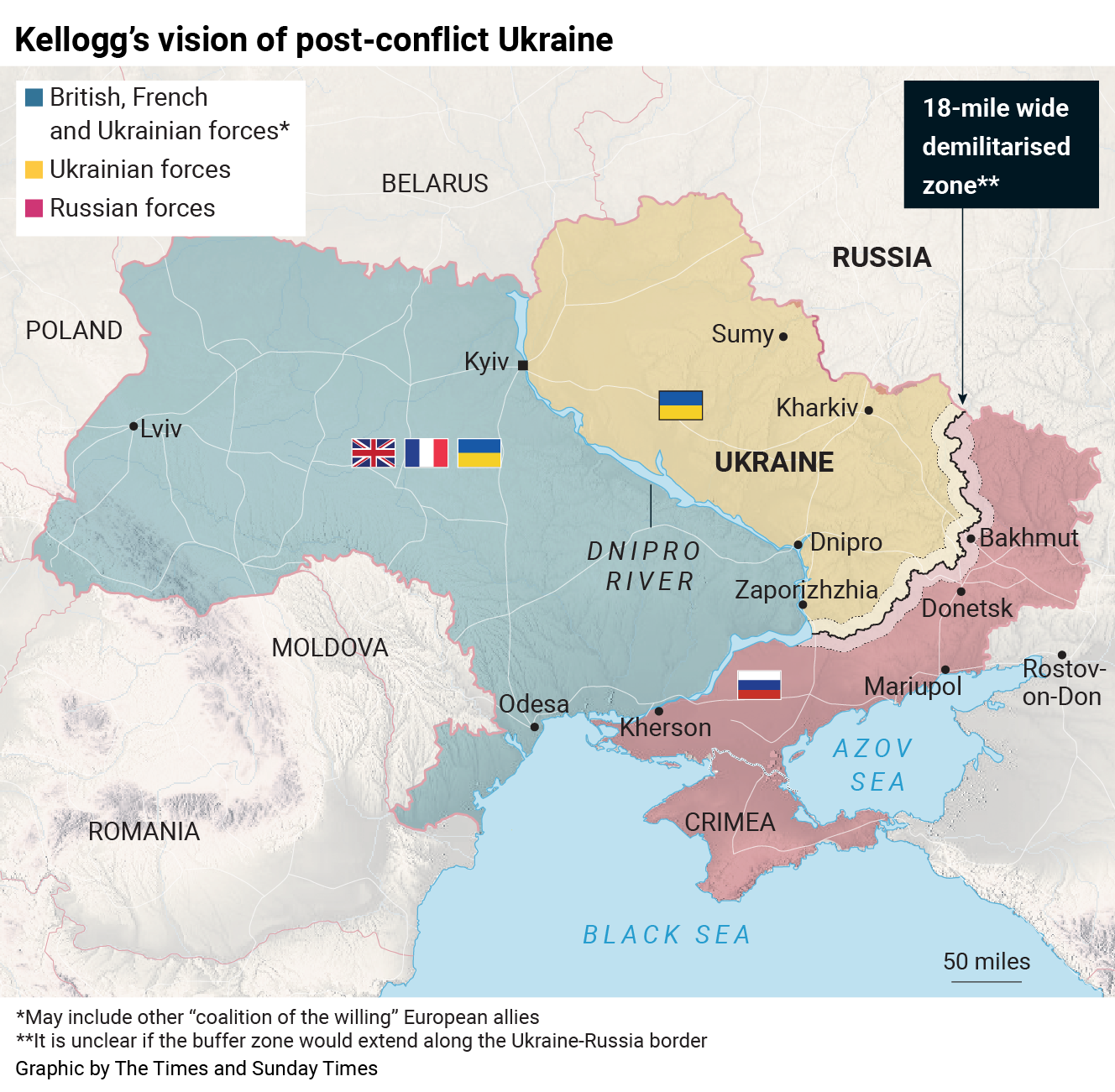Editor’s Note:
We turn two years old on April 25th! We’re making it a goal to have 100 new subscribers by that mark. Will you help us reach our milestone?
We cover Ukraine not just as a battlefield but as a country with deep culture, history, and traditions. We need your help to provide the body armor, first aid kits, gas and food to continue reporting.
Ganka Smirnova fled the war to the United States in search of safety.
But now the country that was her place of refuge may soon tell her to leave.
The Trump administration is considering an order that could send her back to Ukraine — and a return to nightly explosions, routine airstrikes, and shattered homes.
"I have a place to return to, but many people don't," Ganka said. “And that's the worst thing.”
Donald Trump said last month that he is weighing revoking the legal status of approximately a quarter million Ukrainians who fled the conflict with Russia. Reuters, citing four sources, the decision could come as soon as this month.
Just over a week ago, some Ukrainian citizens residing in the United States under a humanitarian program received letters from DHS informing them that their status had been revoked and that they had seven days to leave the country. The next day, a DHS spokesperson acknowledged that the notices had been sent in error and that the program remained active.
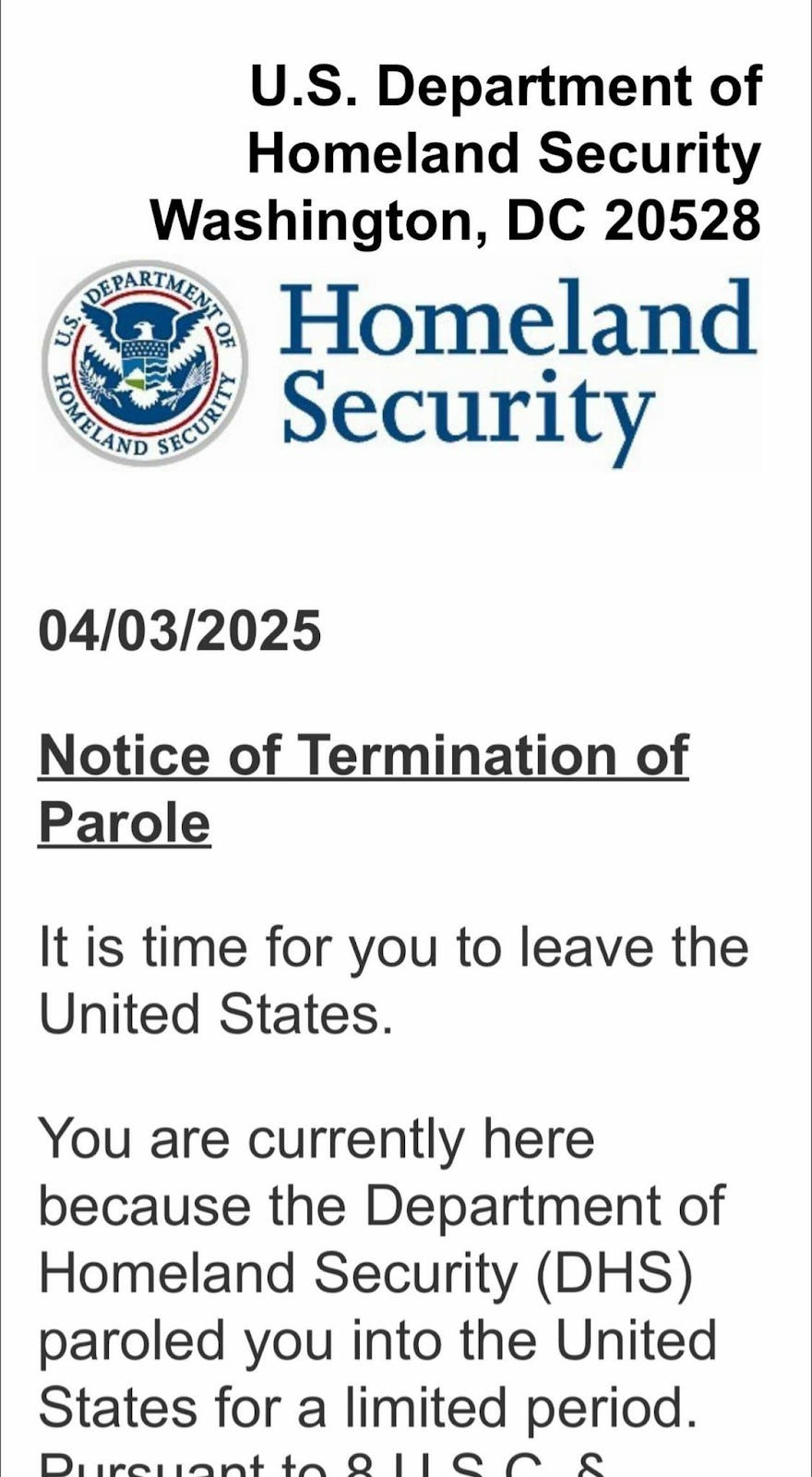
The refugees arrived under the Uniting for Ukraine (U4U) program launched by the Biden administration, which allows Americans to sponsor a Ukrainian, provided they guarantee the refugee’s financial well-being. Most have found jobs, sent money to their families in Ukraine, and are building new lives.
Deportations would result not only in personal tragedies, but also broader consequences: for the American economy, which has received an influx of labor; for the relationship between Washington and Kyiv; and even for the future of the war, as the income earned by Ukrainian refugees is an essential resource for their families back home.
Worst of all is the uncertainty. Like small businesses unsure if tariffs are on or off, Ukrainians can hardly plan anything while a Trump-shaped guillotine towers over their American future.
As of January 2024, the United States had accepted the largest number of Ukrainian refugees among countries outside of Europe. About 280,000 Ukrainians have moved to the United States on the U4U program, according to the Ukraine Immigration Task Force, an NGO that helps Ukrainians resettle in the U.S.
The threats have unsettled many Ukrainian refugees in America. One of them is Ganka, who left Ukraine in the first year of the war.
On February 27, 2022, the first Russian military vehicles were spotted in the village of Makariv, where she was staying. The troops were trying to break through to Kyiv, which lay to the east. On March 2, the Ukrainians liberated the village and gained a foothold in it. However, Makariv was still under constant shelling.
"For two weeks we were in this [occupation] without electricity, without water, without food, where we had to survive, where there was bombing... and you just don't know what you're going to do tomorrow, whether you're going to wake up or not," Ganka recalled.
Despite the constant attacks, Ganka had delayed moving, because she did not want to leave Ukraine and her family at such a difficult time. In November 2022, Ganka came to New York on the Uniting for Ukraine program. A friend from Washington, D.C., helped Ganka get in.
Americans were kind to Ganka when she arrived — everyone she met was very friendly. But the effects of living under occupation had taken their toll, and she struggled with her first days in the United States.
"New York is a very loud city, with many people. And that affected me. It triggered me [because of the noise she recalls from occupation]. It was terrible," Ganka told The Counteroffensive. "At first, I lost touch with reality here, because there is a war going on in Ukraine. People here seem to be living their quiet, peaceful, ordinary lives... I felt that it was all a kind of simulation, a game. And it was not real.”
More than once, Ganka considered buying a ticket back to Ukraine because her heart pulled her home. But she realized she could be helpful in America too. She began attending protests demanding more aid for Ukraine, raising money for the armed forces, and supporting other Ukrainians in the United States.
Rally in support of Ukraine, New York, 2022. Video provided by Ganka
The U4U program provided Ganka with a work permit, enabling her to secure a job as a model at an agency. There are no restrictions on specialties, allowing Ukrainians to work in any field. The program also provides monthly financial assistance, which includes a little over $200 for food and $90 in cash. “It's not a lot of money for New York, but it helps to pay for the phone, for example,” Ganka said.
At the end of January, Donald Trump signed the ‘Securing Our Borders’ executive order, instructing the Department of Homeland Security to halt all migrant programs established under the Biden administration.
He then indefinitely suspended the acceptance of new applications for U4U.

In addition, 530,000 Cubans, Haitians, Nicaraguans, and Venezuelans – as well as 70,000 Afghans fleeing the Taliban – have been threatened with deportation.
Trump himself has been unclear regarding where he stands on revoking the status of Ukrainian refugees.
"We're not looking to hurt anybody,” he told reporters in the Oval Office. "There were some people that think that's appropriate, and some people don't, and I'll be making the decision pretty soon."
If Trump signs an executive order, deportations would not begin immediately, due to martial law still being in effect in Ukraine, and it's possible that they could be offered alternatives on how to stay legally, said Yelyzaveta Mazur, an immigration lawyer at the Ukrainian law firm Prikhodko & Partners.
However, absent alternatives they will either have to leave or wait for an evacuation organized by the Ukrainian authorities. Individuals who do not leave the United States or apply for a new status might face fines or administrative penalties, depending on state laws, according to Mazur.
Ganka, who may be deported from New York, said that when she heard about the possible decision, she felt angry and upset: how can this happen when there is still a war in Ukraine?
"Where's the logic: he [Trump] wants to send Ukrainians home, and then he says he doesn't want to hurt them. And this ambivalence, it's a little bit confusing. It's a kind of chaos," Ganka said.
The return of deported Ukrainians could create several issues, particularly for those who have lost their homes or who come from occupied territories, Mazur said. Do they possess valid Ukrainian documents? Are they included in government registries, given that many left with non-biometric passports?
Another issue is housing. Will those whose homes were destroyed be able to get it? In Ukraine, the process of finding housing has been complicated, and those returning from the United States may also face scrutiny regarding the legality of their departure, particularly for men.
“The question is for those who left for help, to escape the war. Most of them are not from Kyiv or western Ukraine. If they are deported from the United States, they will need to apply for benefits, assistance from the state, and compensation for housing,” Mazur said.
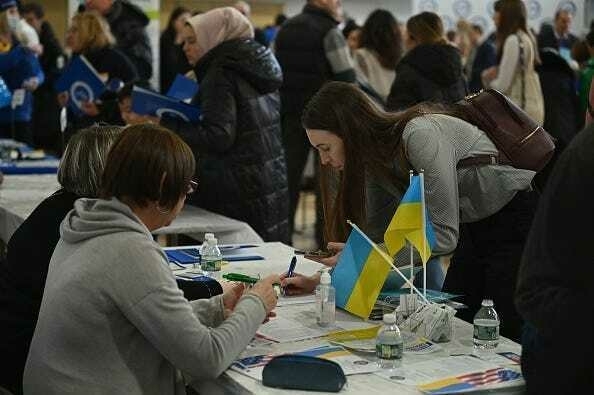
Deporting a quarter of a million people could affect America's international reputation, which is already changing, Ganka said.
Even if such a decision is made, she is not afraid. Ironically, like those who would like to deport her, Ganka’s dream is that she can one day return to Ukraine.
"We are all living in a war, even if we are far away from it. It is impossible to forget it," she said. "I would like to return to a peaceful Ukraine with all our territories and people. I want many other Ukrainians to do the same and help rebuild Ukraine."
In this time of great uncertainty — and unstable American support — it means that the situation on the ground is very dangerous. Your contributions help us get the body armor, medical gear, and supplies we need to stay safe.
Show your support by contributing to our tip jar - funds go towards keeping us safe and ensuring our work continues.
NEWS OF THE DAY:
Good morning to readers; Kyiv remains in Ukrainian hands.
TRUMP ENVOY: PARTITION UKRAINE LIKE POST-WWII BERLIN: Gen. Keith Kellogg, Trump's envoy to Ukraine, said that British/French troops could be stationed west of the Dnipro River as a "reassurance force," while Ukrainian forces were based east and north of the river.
The forces would act together as a deterrent to future Russian violations of the ceasefire, Kellogg envisioned, according to The Times. “You could almost make it look like what happened with Berlin after World War Two, when you had a Russian zone, a French zone, and a British zone, a US zone,” he said.
UKRAINE: TWITTER CONCEALING RUSSIAN WAR CRIMES: A spokesperson for the Ukrainian Ministry of Foreign Affairs criticized Twitter for applying the tag “sensitive content” to a post about Ukrainian children killed by Russia — arguing that it was tantamount to concealing war crimes.
"This isn’t preventing users from exposure to graphic content. This is sweeping Russian war crimes under the rug," said MOFA spokesman Heorhii Tykhyi. “This is shameful and must be reversed.”
TRUMP'S NEGOTIATOR WITKOFF MEETS PUTIN: Steve Witkoff flew to St. Petersburg for talks with Putin, and was photographed shaking hands with the dictator. No results from the meeting have been shared publicly, per Sky News.
… WHILE TRUMP URGES PUTIN: Meanwhile, Trump urged Putin to get serious about peace. "Russia has to get moving. Too many people ere [sic] DYING, thousands in a week, in a terrible and senseless war," wrote Trump on a Truth Social post. A top White House spokesperson said that Trump was getting frustrated with both the Ukrainians and the Russians.
"I think the president has been quite clear that he's been continually frustrated with both sides of this conflict and he wants to see this fighting end; he wants the war to end, and we believe we have leverage in negotiating a deal,” Karoline Leavitt said.
DOG OF WAR:
Today’s Dog of War is a husky with such beautiful eyes. She was waiting for her owners at the entrance to a store, and Nastia couldn't help but take her photo.
Stay safe out there.
Best,
Tim
The Counteroffensive is a reader-supported publication. To receive new posts and support our work, consider becoming a free or paid subscriber.

